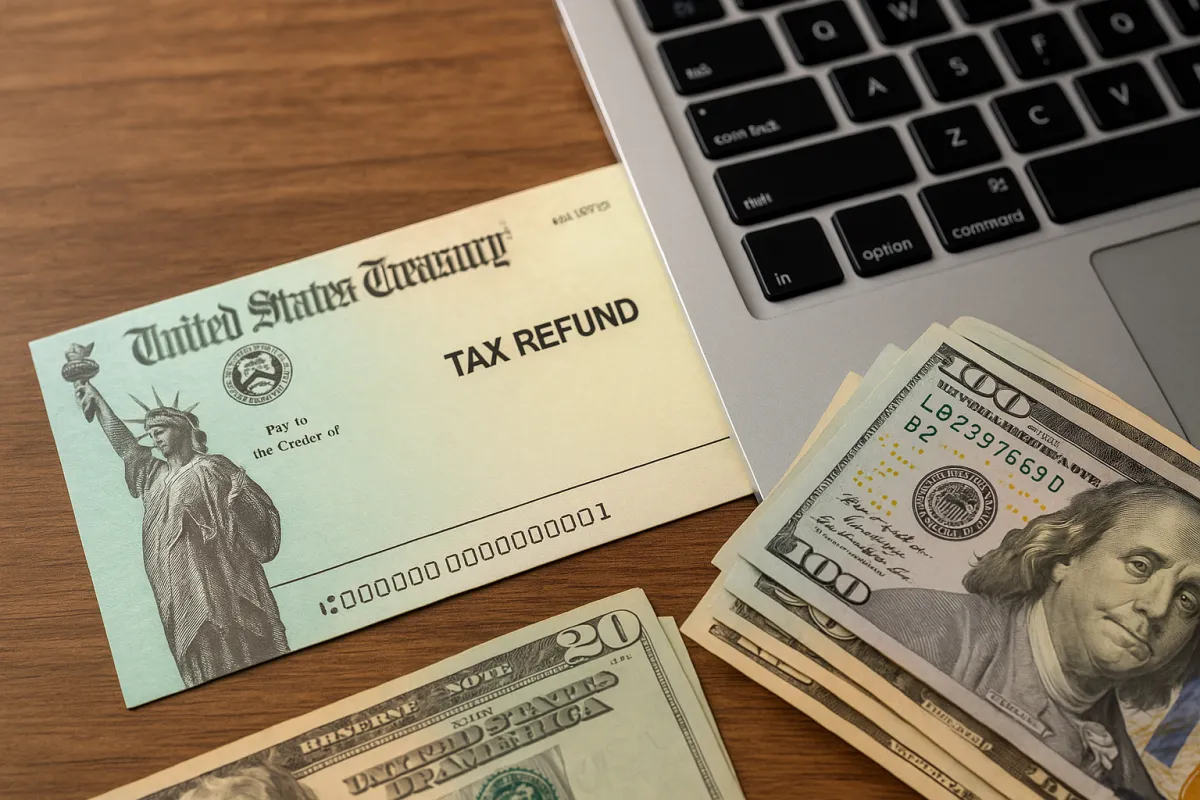
Say Goodbye to Paper Refund Checks: What the IRS’s Big Move Means for You
The IRS has officially begun phasing out paper refund checks, steering taxpayers toward direct deposit and other electronic payment methods. At first glance, this may feel like one more change in a system that already seems overwhelming. But if you look closely, this shift could actually be one of the most practical upgrades in recent tax history—especially for everyday taxpayers, small business owners, gig workers, and real estate investors.
Why the Shift Is Happening
Paper checks aren’t just outdated—they’re costly, slow, and vulnerable. Every year, millions of refund checks are lost, delayed in the mail, or even intercepted by fraudsters. For the IRS, the administrative costs of printing and mailing are huge. For you, it can mean weeks (sometimes months) of waiting for money that’s rightfully yours.
Electronic refunds cut through all that. They’re faster, more secure, and more reliable. What used to take weeks in the mail now often takes days. Instead of worrying about whether your check will arrive—or if it’ll get stolen from your mailbox—you can wake up one morning and see your refund safely in your bank account.
What It Means for Small Business Owners
For entrepreneurs, cash flow is everything. Waiting for a paper check can strain operations—especially when tax season overlaps with payroll deadlines, vendor invoices, or investment opportunities. Electronic refunds mean you can reinvest in your business sooner, whether that’s buying new equipment, paying staff, or setting aside funds for quarterly estimates.
A Win for Real Estate Investors
Real estate timelines move fast—properties get listed, contracts close, and deals fall through. A delayed paper check refund can be the difference between jumping on a property or watching it slip away. With direct deposit, investors can count on faster access to funds, which could help cover down payments, repairs, or property taxes right on time.
Freelancers and Gig Workers Benefit Big
For gig workers and freelancers who live with variable income, timing is everything. A delayed refund check can mean falling behind on bills or missing opportunities to invest in tools and platforms that help grow your hustle. Electronic refunds put you in control, giving you quicker access to money you’ve earned back—without depending on the mail system.
The Bigger Picture: Trust and Efficiency
There’s also a peace-of-mind factor. Direct deposits are tracked electronically, which means less room for error and a clearer paper trail if something goes wrong. It’s a level of efficiency that helps taxpayers feel like they’re finally not stuck in a system built for the 1980s.
Behind the scenes, firms that stay on top of IRS updates and tax changes are helping people adjust smoothly to this transition. When you have trusted professionals guiding you, this change doesn’t feel like an inconvenience—it feels like an upgrade.
Final Thoughts
Yes, it’s the end of an era. But in this case, the end of paper checks isn’t a loss—it’s progress. It means quicker refunds, fewer headaches, and more confidence that your money gets where it needs to go.
What do you think about the IRS phasing out paper checks? Have you ever had a refund lost in the mail—or do you already rely on direct deposit? Drop your thoughts in the comments, share your story, and let’s talk about how this change is hitting taxpayers, business owners, and gig workers in real life. If you found this helpful, share it with someone who might be waiting on their refund right now.